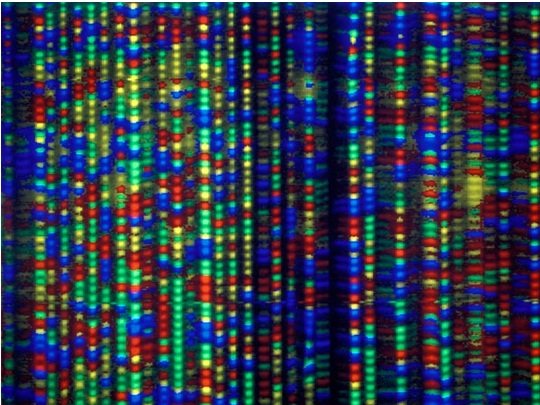Scientists Announce the Creation of AXN Synthetic DNA

Posted earlier today in Science , the research carried out by a team of scientists from the University of British Columbia in Canada has announced the creation of AXN, or whatever it is, synthetic DNA laboratory able to store and copy genetic information . A study is said, could help answer basic questions of biology and enormous implications for biotechnology or medicine.
And is that so far had the DNA and RNA as the only molecules with the ability to contain and transfer biological information.
How did they do? The researchers successfully synthesized six molecules, polymers wereable to comply with the laws of inheritance, provided one with Darwinian evolution .AXN building blocks created six different genetic systems by replacing the deoxyribose sugar component of the DNA with one of six different polymers, synthetic chemicals.
Then developed enzymes called polymerases, which could make DNA AXN along with others that could change AXN DNA. This ability to copy and translate allows gene sequences to be copied and transmitted over and over again, artificial inheritance.
According to Phil Holliger in Sync account , coordinator of the study:
We created synthetic polymers other than DNA and RNA that can store and disseminate information, two of the hallmarks of inheritance and life. This implies that there is no imperative for that life has to be based on the DNA and RNA. Most likely, your presence is not merely a reflection frozen an ‘accident’ which occurred in the origin of life.
And is that the AXN can be synthesized and replicate the information containedthanks to its ability to bind to complementary DNA and RNA. Not only that, the AHN, a new molecules AXN, is able to behave in the same way that DNA under changing conditions. May evolve into other forms that bind to a particular goal.
According to the researchers:
It shows that beyond inheritance, specific AXN has the ability to Darwinian evolution.
Could the AXN demystify the origins of life? According to scientists, all actions of AXN are controlled by the researchers in a process “100% natural”:
We may be able to use it to make us very basic questions of biology. As that life began with DNA and proteins as it is today, which may have started with something much, much simpler.
Holliger finally speaks about their implications for the future:
The results imply that there may be other ways of storing genetic information different from what we know both our planet in the universe.This opens the door to the era of synthetic genetics and has implications for exobiology, biotechnology and understanding of ourselves.
Photo: Karen Kasmauski
Shortlink:

Recent Comments